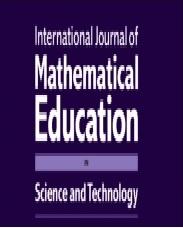
The importance of developing students' mathematical thinking is frequently highlighted in literature regarding the teaching and learning of mathematics. Despite this importance, most curricula and instructional activities for undergraduate mathematics fail to bring the learner beyond the mathematics. The purpose of this study was to enhance students' mathematical thinking by implementing a computer algebra system and active learning pedagogical approaches. students' mathematical thinking processes were analyzed while completing specific differential equations tasks based on posed prompts and questions and Instrumental Genesis. Data were collected from 37 engineering students in a public Malaysian university. This study used the descriptive and interpretive qualitative research design to investigate the students' perspectives of emerging mathematical understanding and approaches to learning mathematics in an undergraduate differential equations course. Results of this study concluded that students used a variety of mathematical thinking processes in a non-sequential manner. Additionally, the outcomes provide justification for continued use of technologies such as computer algebra systems in undergraduate mathematics courses and the need for further studies to uncover the various processes students utilize to complete specific mathematical tasks.
Fereshteh Zeynivandnezhad Organization for Educational Research and Planning, Institute of Curriculum Planning and Educational Innovation, Research Group on Curriculum of Math and Physics, Tehran, IranCorrespondencezfereshteh2@liveutm.onmicrosoft.com
& Rachel Bates Mathematics Department, Redlands Community College, El Reno, OK, USA
